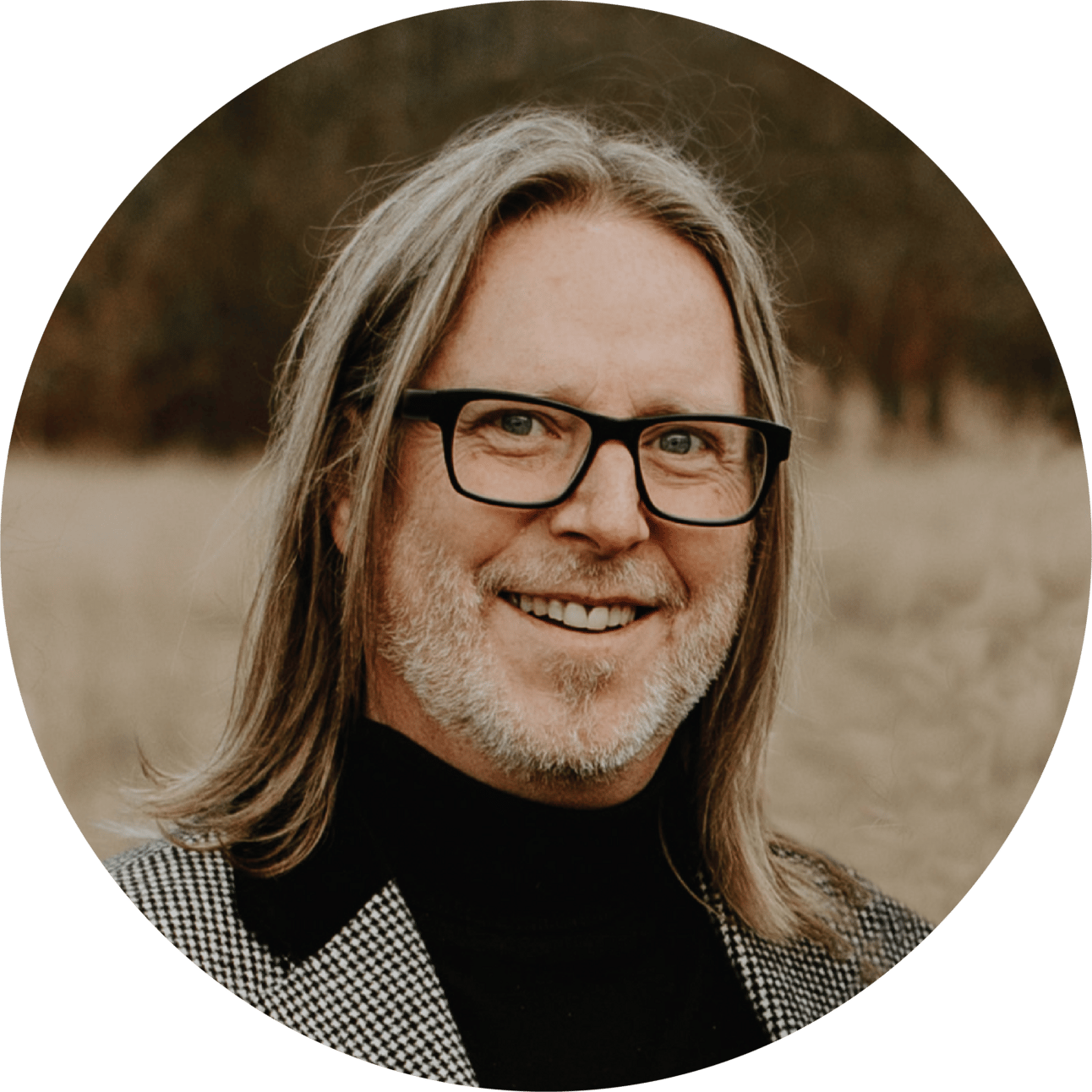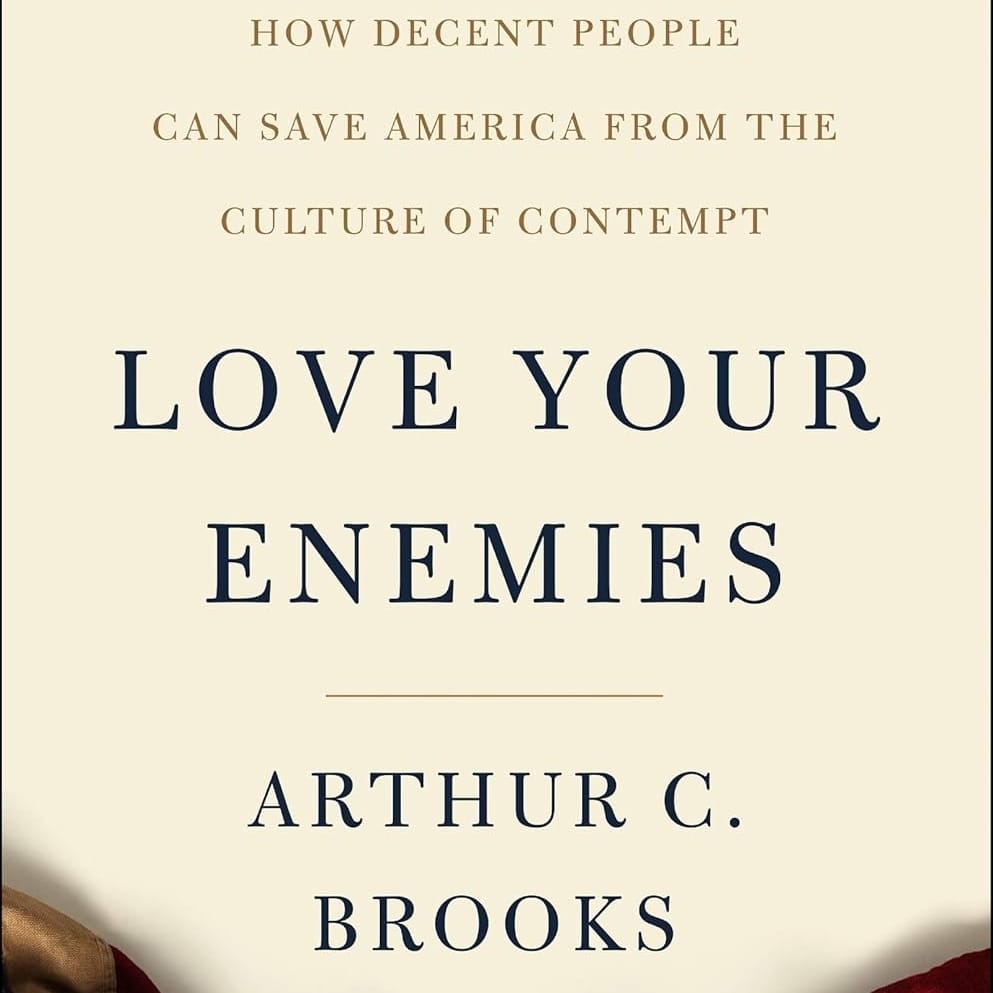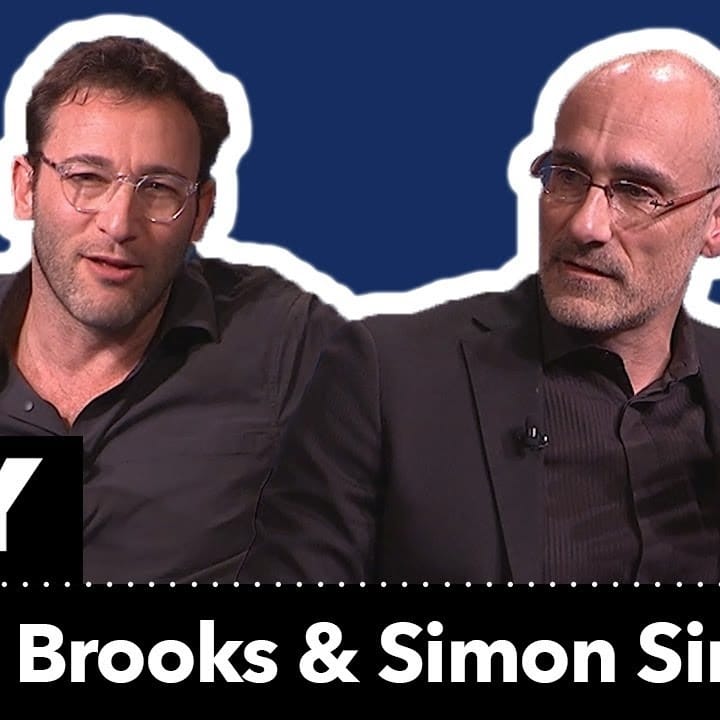Over the last decade, something's shifted in the way we speak to each other—and how safe we feel saying things that used to be innocuous.
What used to be healthy disagreement now feels weaponized. Friends have become more selective about what they share. Coworkers tread lightly. And online? The hostility is dialed all the way up.
So what's happened?
Arthur C. Brooks—a Harvard professor, social scientist, and one of the rare people who can hang out with both monks and millionaires—found himself smack in the middle of this question a few years ago.
He was speaking at a conservative political event in New Hampshire. The room was full of energy—strong views, strong coffee, strong opinions flying around like confetti. You know the type: mostly people who agreed with each other and weren't shy about it.
But Arthur wasn't there to preach to the choir. He was there to tell the truth.
So mid-speech, he paused—and dropped a line that landed like hitting send on the wrong group chat:
“I want you to remember the people who aren't in this room—the ones who don't agree with us. They're not stupid. They're not evil. They're just Americans who see things differently.”
Silence.
Then someone in the crowd shouted:
“I do think they're stupid and evil!”
And the room erupted in laughter and applause. Arthur didn't flinch. But something cracked open inside him.
He thought, She's talking about my mom. A soft-spoken painter from Seattle. A progressive. A brilliant, kind woman with a garden full of dahlias and a bookshelf full of poetry.
That moment changed everything.
Because Arthur realized something most of us are feeling but struggling to name: The real problem isn't that we disagree. The real problem is that we've stopped believing the people who disagree with us are worth loving.
It's not disagreement that's dividing us. It's contempt.
The Real Crisis Isn’t Political, It’s Relational
In his book Love Your Enemies, Brooks argues the real problem isn't that we disagree. It's how we disagree.
“Anger shows you still care. Contempt is when you've stopped seeing the other person as fully human.”
It's the subtle sneer. The eye roll. The moment we reduce a person to a label instead of acknowledging their humanity. The sarcastic retort that quietly implies:
“You're not just wrong—you're beneath me.”
This isn't just bad manners. It's relationship poison.
The Gottman Institute—basically the Harvard of marriage research—has studied thousands of couples and found that the #1 predictor of divorce isn't anger. It's contempt.
If contempt can end a marriage, imagine what it does to our families, friendships, communities, and even countries.
I Wish I Could Say I’m Above This
Here's the deal: I wish I could say I was past this, but contempt still sneaks in more often than I'd prefer.
Just yesterday, I saw something someone had posted online, and my first reaction was, “How could they be so stupid?”
Not exactly a helpful response.
But I've learned—the hard way—that contempt never produces anything good. It might feel satisfying for a second, like a mental mic drop. But it leaves behind relational carnage. And if I want to live love well—not just talk about it—then I can't make room for contempt at the table.
Whether I'm right, misinformed, or just having a rough day, contempt poisons the conversation. And if I want to do better, I have to notice what's happening before it spills out.
For me, this has become an inner discipline I continue to work on: Paying attention with intention.
It's becoming aware of that quiet sense—the still small voice within—that in a split second before you move to contempt, reminds you:“You don't have to say that. And it wouldn't be loving if you did.”
Sometimes the contempt doesn't even get past my lips. I just sit there, thinking, “They are so bloody ignorant! They just don't get it.” But even when it's just a thought, if I am paying attention—I can still hear that quiet inner whisper saying: “You have a choice. Are you going to turn toward contempt or love?”
What Arthur Learned From The Dalai Lama
When Brooks asked the Dalai Lama what to do in moments like this—when contempt rises in your chest like a wave—the exiled Tibetan leader answered with calm clarity: “Show warm-heartedness.”
Arthur's inner voice: “Got anything else?”
But over time, he realized this wasn't weakness. It was power. It was discipline.
The Dalai Lama prays every day for the happiness of the Chinese leaders who exiled him from his homeland. Not for their downfall—for their joy.
That's next-level love.
Contempt keeps the cycle going. Love disrupts it. It breaks the rhythm, rewrites the rules, and dares us to lead with something better.
And in that way, it's not just good-hearted. It's good strategy
Three Practices to Break the Cycle of Contempt
Expand the Space Between Trigger and Response
Social media wants you to be reactive. So do cable news hosts and angry uncles. But you get to choose. Pause. Breathe. Count to 10 (or 47). Then decide: What would love do here?
Practice the 5-to-1 Rule
Before offering any critique, say (or think of) five affirming things. Yes, it feels forced. Yes, it works. By the time you reach the thing you wanted to say (or think), you may not even want to say it anymore.
Separate Ideas from Identity
You can think someone's ideas are harmful, wrong, or absurd.
But the second you decide they are stupid or evil, you've stopped seeing them as human. Disagree with ideas. Don't dehumanize people.
Disagreement Shouldn’t Equal Rejection
We don't need to all think alike. We need to learn how to disagree without destroying each other. And that starts with the quietest, hardest, bravest act of all: Choosing love in the face of contempt.
Not once. Not when it's easy. But again. And again. And again.
Because love, when practiced in public, becomes an act of resistance.
Be the One Who Loves First
The temptation to roll our eyes, log off in disgust, or “set the record straight” with a biting remark is so real.
But real love—deep, disciplined, justice-rooted love—asks us to reach for something better.
So when contempt rises, let that be your signal. Not to escalate. But to pause and ask yourself:
“What would Love do in this moment?”
Until next week,
Jonathan Penner | Founder & Exec Dir. of LifeApp


Resources To Dig Deeper

Book
Love Your Enemies
Where outrage is currency and contempt is contagious, Arthur Brooks offers a radically different path: love. Blending behavioral science, ancient wisdom, and hard-earned leadership experience, Love Your Enemies challenges the idea that we need to agree more—and instead shows how we can disagree better. This isn’t about being nice. It’s about being courageous. A powerful manifesto for anyone tired of the noise and ready to lead with wisdom, integrity, and love.
-Arthur C. Brooks

Video
Love Your Enemies: Arthur Brooks with Simon Sinek
Arthur Brooks and Simon Sinek discuss the key themes of Brooks' book, Love Your Enemies, and outline a series of practical strategies for leaders in all areas of life who wish to subvert the culture of contempt and advance progress.
-Robert Waldinger, TED (1:45:30)

Music
Love Wins
In a world splintered by politics, pain, and polarization, Love Wins is a defiant anthem of hope. It names the heartbreak—violence, prejudice, division—and offers love not as a soft sentiment, but as a bold, unifying force. Through powerful lyrics like "I believe you and me are sisters and brothers," it reminds us that contempt may be contagious, but love is the cure that stitches the world back together. Not passively. But actively, courageously, and together.
-Carrie Underwood

Movie
The Best of Enemies (Trailer)
Set in 1971 Durham, North Carolina, this powerful true story follows civil rights activist Ann Atwater and KKK leader C.P. Ellis as they’re forced to co-lead a community summit on school desegregation. What begins in bitter contempt slowly transforms—through proximity, courage, and unexpected humanity—into mutual respect. The Best of Enemies reminds us that love isn’t passive; it’s the hardest, bravest choice we can make when hate is easier.

